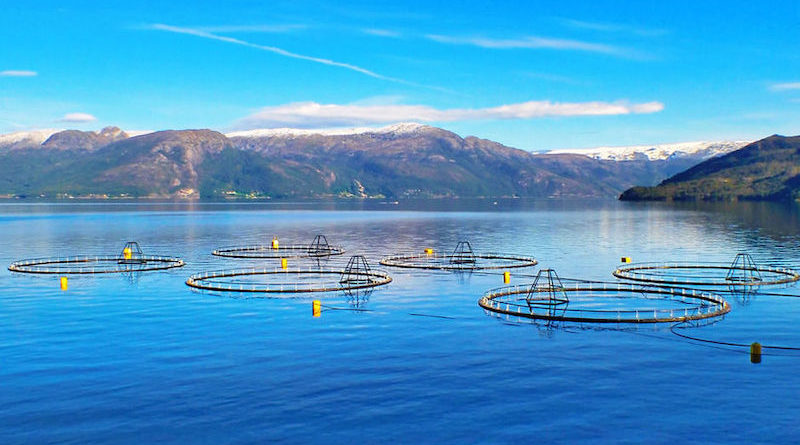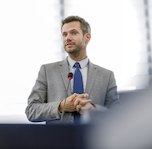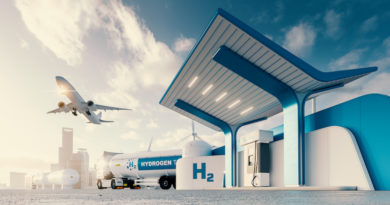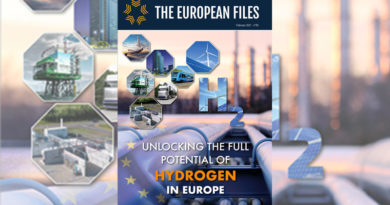
Sustainable fisheries and aquaculture sectors to make the food system resilient
Sustainable fisheries and aquaculture sectors will contribute to a resilient food system, eradication of malnutrition and hunger in Europe and in the world. Fisheries and aquaculture products will play a key role in feeding an increasing world population with healthy products. The proportion of fish production intended for human consumption is expected to continue growing, reaching 89% by 2030, as the Food and Agriculture Organization (FAO) underlines in its report on the State of World Fisheries and Aquaculture for 2020.
Regarding the European Union, one of the objectives of the Common Fisheries Policy (CFP) is to ensure that fishing and aquaculture activities are environmentally sustainable and managed in a way to achieve socio-economic benefits and to contribute to availability of food supplies.
CFP applies to the entire EU fleet within the European waters as well as outside of them. It means that the European fleet has to comply with high environmental, social and sanitary standards all over the world. Very high standards also apply to European aquaculture production. Nonetheless, more than 60% of the fisheries and aquaculture we, Europeans, consume come from imports. These imported products can come from countries that do not comply with the same standards than the Europeans producers. Having products in the European market that contribute to the availability of food supplies is not enough. We need to ensure that these products comply with the highest standards in the world such as the European ones and do not come from Illegal, Unreported and Unregulated fishing activities. That is exactly what the Farm to Fork Strategy attempts to address by making the value chain more sustainable.
Improving the traceability for imported products while continuing working on the sustainability of our methods of production is key to ensure food security in Europe. In addition to that, we also need to valorise our European products. Consumers need to know when a fish is caught sustainably or when an aquaculture production is done in a sustainable way. The efforts of the European producers to make their practices more sustainable need to be economically and socially rewarded. This is what we need to work on and unfortunately, the Farm to Fork Strategy is still lacking ambition in that matter.
Sustainable fisheries and aquaculture management, in line with our international commitments on UN Sustainable Development Goals, is key to ensure food security in Europe. For fisheries, the reformed CFP introduced the concept of Maximum Sustainable Yield (MSY). The objective of the MSY is to preserve resources while allowing a profitable activity for the fishing sector. Even though it is not applied in all European sea basins already, it has shown positive effects in some regions such as in North-East Atlantic.
We need to carry on fishing to offer food supplies to European citizens, but it has to be done respectfully to biodiversity, marine environment and in a way to allow stocks to reproduce.
It is the same for aquaculture activities. We have to make sure that aquaculture productions preserve the quality of the products and animal welfare. One need to understand that aquaculture could play an important role in the following years in providing food to a growing population. That is why it is fundamental to have sustainable aquaculture production methods and practices.
Sustainability of fisheries and aquaculture goes hand in hand with the resilience of the food system. We cannot separate or oppose one to the other. For these sectors to guarantee food security in Europe, we need to make them more attractive to the future generations. The European Maritime and Fisheries Fund should help this purpose but cannot be the only way. Therefore, we need these sectors to be economically and socially resilient. In this perspective, we should not forget that sustainable development has three focuses: environment, economic and social and that they should be treated equally. To guarantee food security, we need fishers and aquaculture producers for the century to come.
In Europe, we decided to focus on these two pillars: sustainability and resilience. The Green Deal, the Farm to Fork and the Biodiversity strategies will serve this goal of achieving more sustainable fisheries and aquaculture sectors to ensure a resilient food system for our continent. But it will not be enough if we act alone.
We have to act globally through the Regional Fisheries Management Organisations and through all the international platforms, in order to ensure that achieving food security is not only a European concern but a global one. Fisheries do not know borders; our ocean is common. Aquaculture products coming from all over the world enter every day the European market. Therefore, our fight for sustainable fisheries and aquaculture sectors must be global!




